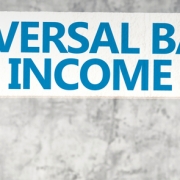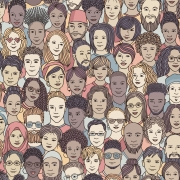American socialists have a love affair with praising the welfare systems of Nordic countries. Convinced that America is foolish not to follow in the footsteps of countries like Finland, Denmark, and Sweden, many claim that individuals in this country would be better off if our own government strengthened its welfare system.
One of the more popular proposals for expanding the welfare state is to implement what is known as a universal basic income (UBI). Under this type of system, individuals would be given monthly stipends from the government, instead of paying into welfare programs like we do currently. What the recipients do with this money, however, is up to them. Though it is hoped that this money will be used to pay for services once provided through government programs.
However, many proponents of the free market have been quick to warn that the UBI might not live up to all the hype. In fact, a recent study conducted by the Roosevelt Institute on the impacts of a UBI concluded that the implementation of this program did not yield positive effects, especially since the funds needed to pay for this program still come at a high cost to the taxpayer.
The study’s conclusions stated:
“When paying for the policy by increasing taxes on households rather than paying for the policy with debt, the policy is not expansionary. In effect, it is giving to households with one hand what it is taking away with the other. There is no net effect.”
However, while this gave us a grim look into some possible long-term effects of implementing a hypothetical UBI in the United States, Finland is about to wrap up their own real-life experiment.
Almost two years ago, Finland decided to scrap its own welfare system and replace it with a UBI. The experiment was only set to last for two years, at which point the government of Finland would analyze the results and reach a conclusion about the experiment as a whole.
Commenting on Finland’s experiment, The New York Times recently reported:
“For more than a year, Finland has been testing the proposition that the best way to lift economic fortunes may be the simplest: Hand out money without rules or restrictions on how people use it. The experiment with so-called universal basic income has captured global attention… Now, the experiment is ending. The Finnish government has opted not to continue financing it past this year, a reflection of public discomfort with the idea of dispensing government largess free of requirements that its recipients seek work. …the Finnish government’s decision to halt the experiment at the end of 2018 highlights a challenge to basic income’s very conception. Many people in Finland—and in other lands—chafe at the idea of handing out cash without requiring that people work. …Finland’s goals have been modest and pragmatic. The government hoped that basic income would send more people into the job market to revive a weak economy. …The basic income trial, which started at the beginning of 2017 and will continue until the end of this year, has given monthly stipends of 560 euros ($685) to a random sample of 2,000 unemployed people aged 25 to 58. Recipients have been free to do as they wished… The Finnish government was keen to see what people would do under such circumstances. The data is expected to be released next year, giving academics a chance to analyze what has come of the experiment.”
Prior to great UBI experiment, Finland’s welfare system was like that of other Nordic countries. Large portions of the people’s paychecks were taken by the government and then redistributed to the dozens of state-sponsored welfare programs. As can be expected, these programs became financially burdensome for Finland. In fact, one of the goals of the UBI experiment was to see if it could save money by reducing the need for many of the government’s programs.
While the results of the experiment are still pending, it is not likely that the Finland experiment will tell us anything different than we already know: The UBI doesn’t work. It’s too expensive and it completely negates the role incentives play in the job market. Even so, it will be interesting to see what the future of the Finnish welfare holds in the aftermath of the UBI experiment.
To understand more about why a universal basic income will never work, read more here.













